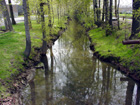Please patronize our sponsors. Ads with links are clickable.

Vet offers
Holiday tips for pets
The Hasbrouck Heights Oradell
Veterinary Group offers the following suggestions to avoid Holiday hazards:
- Pets should never eat the
following plants: holly, mistletow, amaryllis or lilies.
- Pets should never eat the
following holiday treats: chocolate, coffee, onions, fatty foods, yeast dough, macadamia
nuts or alcoholic beverages. Make sure all food-related gifts are tucked away safely.
- Inhaling candle fumes can be
harmful to birds.
- Leaping cats and wagging tails can
knock over lit candles.
- Liquid and dired potpourri are
hamful if eaten.
- Small, breakable oraments should
be kept high on the Christmas tree.
- Batteries contain corrosive
materials that can cause ulcerations in your pets' mouth, tongue or gastrointenstinal
tract.
- Make sure carcass leftovers are
secured away from your pet. Bones are never a good choice for a snack as they may become
lodged or splinter in the digestive system. Also, bones and fat are too much for your
pet's gastrointestinal system and can cause severe upset.
- Tinsel and garland are too
tempting for your kitty. Pets, particularly cats, love to chew and play with glittery
tinsel. Unfortunately, they can't resist eating it and it can become entangled in the
intestinal tract. Often, it must be surgically-removed.
- Pine needles are toxic making them
dangerous if eaten
- If you're planning a party,
provide your pet with a quiet, secure place for him/her to settle in while you party. The
presence of many visitors unknown to your pet can cause unnecessary stress for him/her.
- If you're thinking of giving a new
pet as a holiday gift, the holiday season is probably the worst time to introduce a new
pet into your home. Instead, package up a basket with a leash, food, dish, toys and a
brush together with an IOU...then plan an outing AFTER the holiday rush when you can
introduce your new pet to your peaceful, quiet environment!
- Electrical cords, decorations and
holiday plants all pose potential hazards. Try to segregate your pet from holiday
trimmings when you're not home. Avoid leaving your furry friend unsupervised around these
tempting items.
- Don't be tempted to increase the
treats for your pet. Maintain the pet's regular diet and keep plenty of fresh water
available at all times.
If your pet becomes ill as a
result of coming into contact with any of these holiday hazards, contact your veterinarian
immediately for advice on first aid and further treatment. The animal Poison Control
Center phone number is 1-888-4ANI-HELP.
####

|








